Villa du Parc Contemporary Art Center
Annemasse (FR)
2013
“The 18th Place”
Solo show
Curator: Garance Chabert
Press release by Garance Chabert
Drawing on the shifts, connections and intervals in terms of representation between the cultures of her past and the culture she have come to adopt, the artist Thu Van Tran takes a singular approach to memory and the individual recollection, her forgone loss as we forget, and her fragmentary resurgence, circulating in images and texts. Tran explores various visual possibilities for translating and transmitting these themes.
Borrowing a supposedly Brechtian expression whose exact reference momentarily escapes Thu Van Tran, the eighteenth place brings together works that display what normally only exists in the background, barely apparent and already almost gone, from paper scraps littering the artist’s studio to impermanent images on fragile supports or supports in tenuous balance.
Books and the formal, artistic transcription of publications with a very clearly oppressive, notably colonial connotation come up again and again in Thu Van Tran’s approach. The artist, for example, has just completed a free translation of Joseph Conrad’s Heart of Darkness. Recounting a young English officer’s voyage up the Congo, the novel also relates an inner journey and experience that is given voice in particular through the author’s description of an increasingly threatening, impenetrable nature. Thu Van Tran’s project, which is scheduled to be shown at Art Basel in June, has a number of echoes and parallels in pieces being shown at the same time at the Villa du Parc. In From Green to Orange, the artist has covered images of tropical vegetation with an orange coloring agent and obtained a rendering that is dense, sharp and strikingly pictorial. Linked to Conrad’s life through a series of digressions, the deadly volcanic eruption of Mount Pelée in 1902 is conjured up by the repetition of the same image that is more or less fixed on its paper support, displaying the gradual stages of its own iconic disappearance.
The physical impact of light, which leaches out, seeps into, damages and discolors images and materials, is palpable in most of the pieces on show, inviting a metaphorical reflection on the effects of time—the more fragile the original material the quicker the transformation of the supports. So it is with a number of rather delicate posters featuring tourist landscapes. They are already depicted through the lens of exotic locals; we see them now, their colors fading and disappearing the more they are exposed to sunlight. Or, finally, in a more abstract vein, we have the series of the artist’s residue-photograms made up of scraps of photosensitive paper exposed to light in the studio.
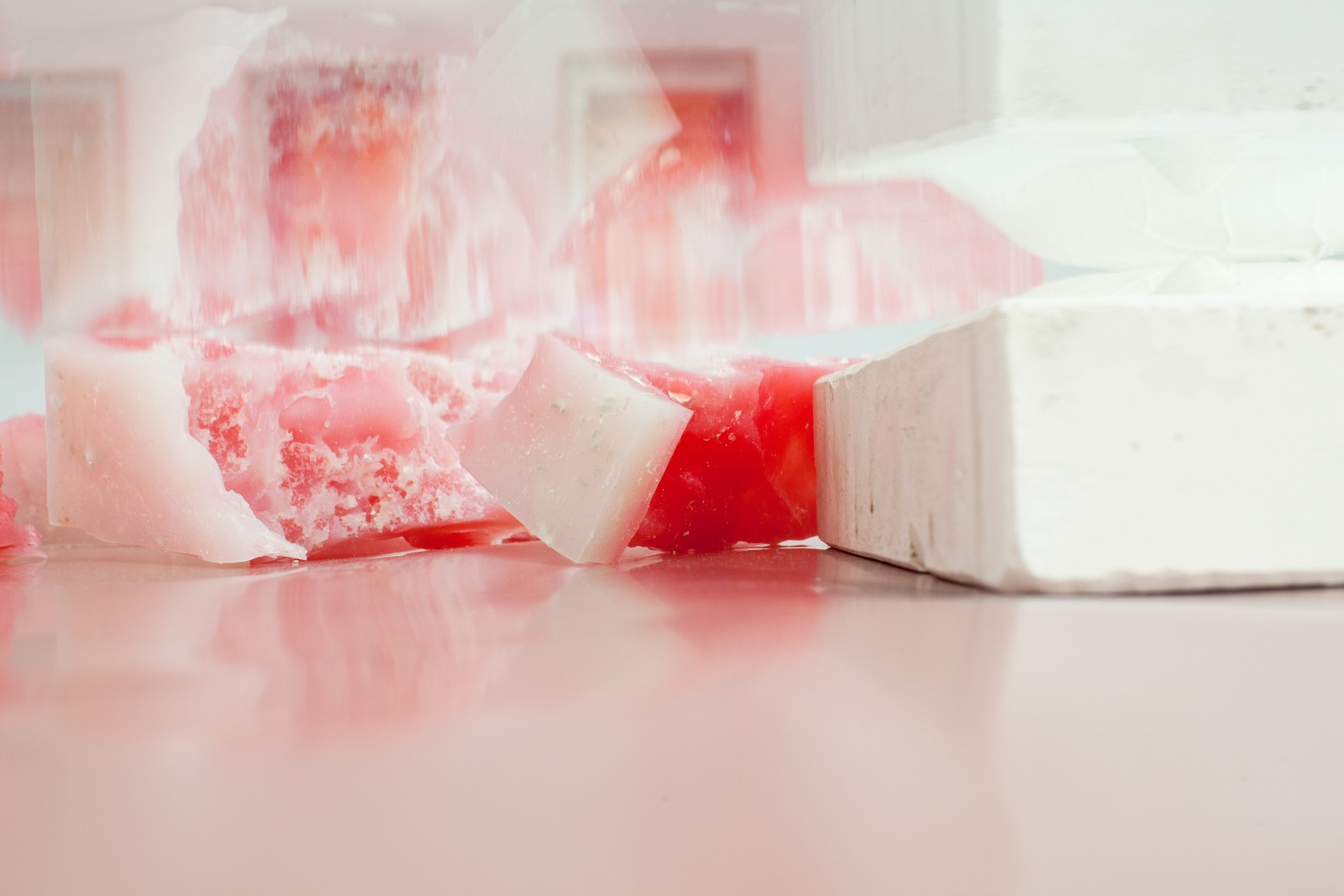
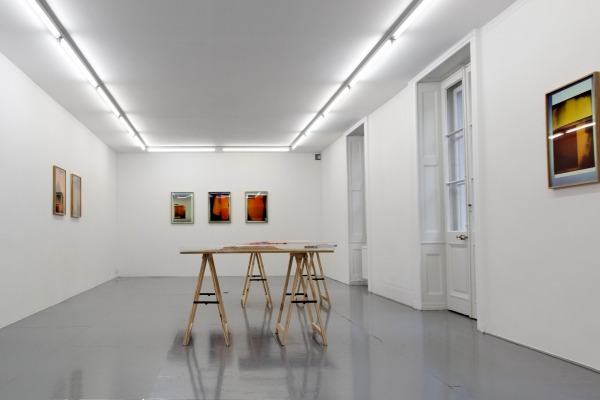
The 18th Place (view of the exhibition)
Residues
Ilfochrome print, reproduction of photograms,
72 × 52 cm (× 5), 66,5 × 52 cm (× 2)
2013
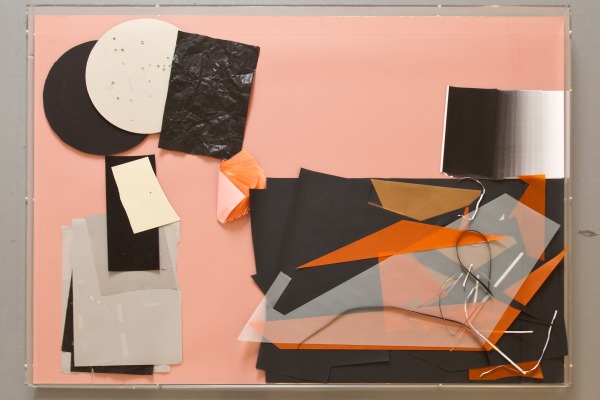
Rejected
Overexposed Kodak paper, tracing paper, transparent printing paper,
90,5 × 125,5 × 8 cm,
2013
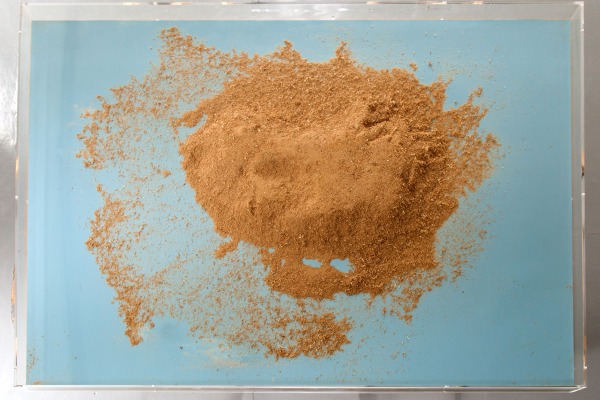
Rejected
Overexposed Fuji paper, wood dust,
90,5 × 125,5 × 8 cm
2013
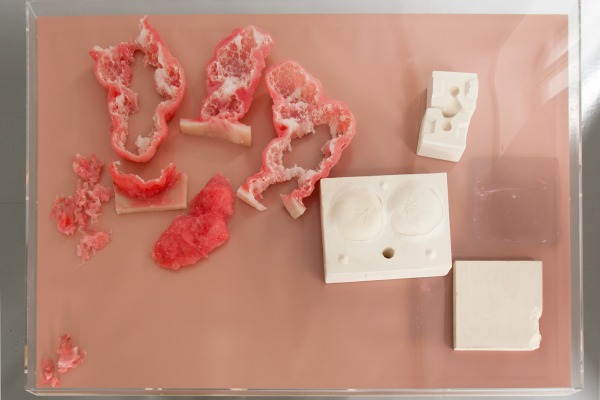
Rejected
Overexposed Kodak paper, silicone, plaster,
90,5 × 125,5 × 8 cm
2013
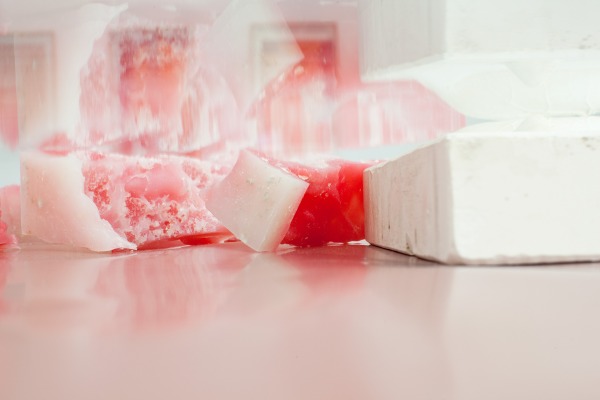
Rejected (Details)
Overexposed Kodak paper, silicone, plaster,
90,5 × 125,5 × 8 cm
2013
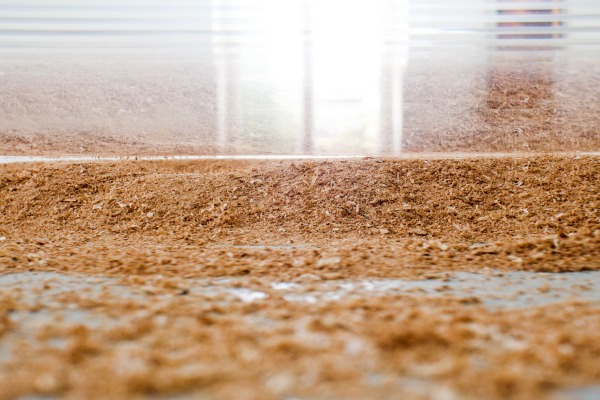
Rejected (Details)
Overexposed Kodak paper, silicone, plaster,
90,5 × 125,5 × 8 cm
2013
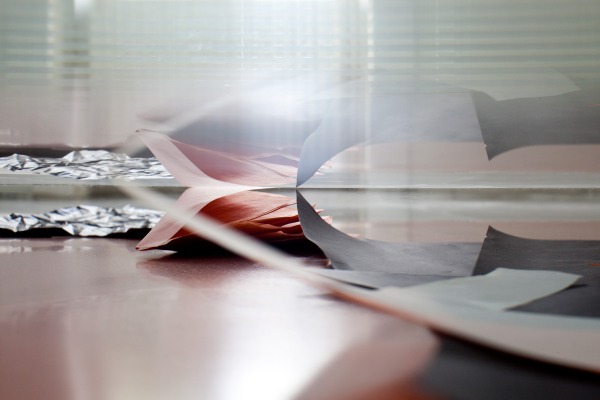
Rejected (Details)
Overexposed Kodak paper, silicone, plaster,
90,5 × 125,5 × 8 cm
2013
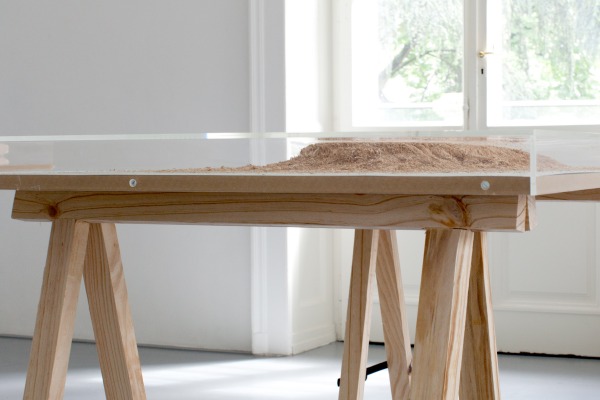
Rejected (Details)
Overexposed Kodak paper, silicone, plaster,
90,5 × 125,5 × 8 cm
2013
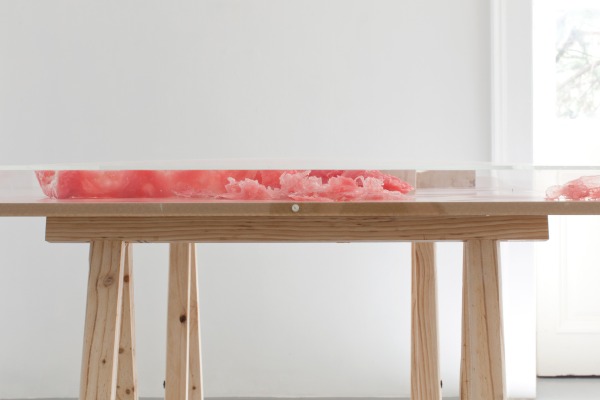
Rejected (Details)
Overexposed Kodak paper, silicone, plaster,
90,5 × 125,5 × 8 cm
2013
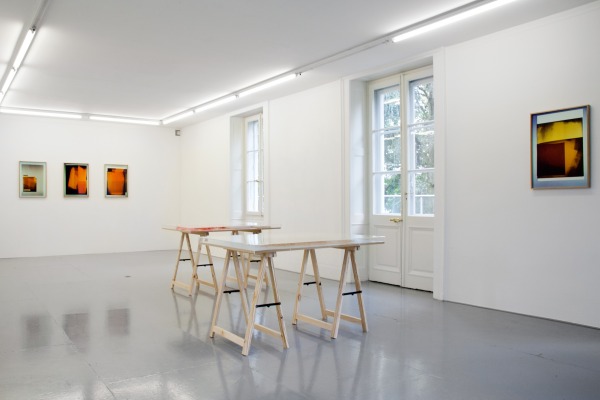
The 18th Place (view of the exhibition)
Residues
Cibachrome argentic photopaper
72 × 52 cm (× 5), 66,5 × 52 cm (× 2)
2013
Rejected
Overexposed Kodak paper, silicone, plaster,
90,5 × 125,5 × 8 cm
2013
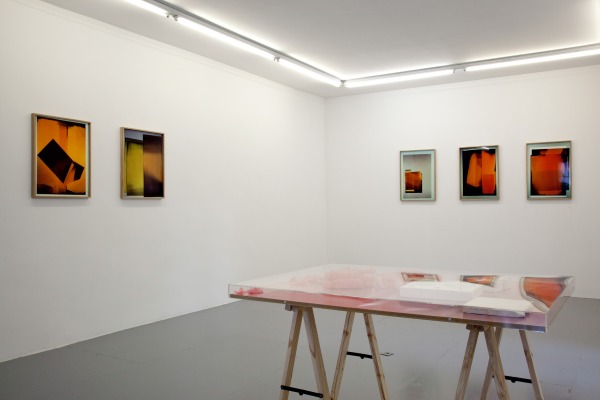
The 18th Place (view of the exhibition)
Rejected
Overexposed Kodak paper, silicone, plaster,
90,5 × 125,5 × 8 cm
2013
Residues
Cibachrome argentic photopaper
72 × 52 cm (× 5), 66,5 × 52 cm (× 2)
2013
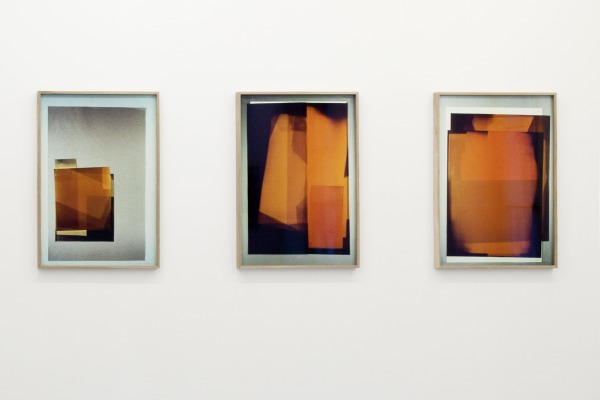
Residues
Cibachrome argentic paper
72 × 52 cm
2013
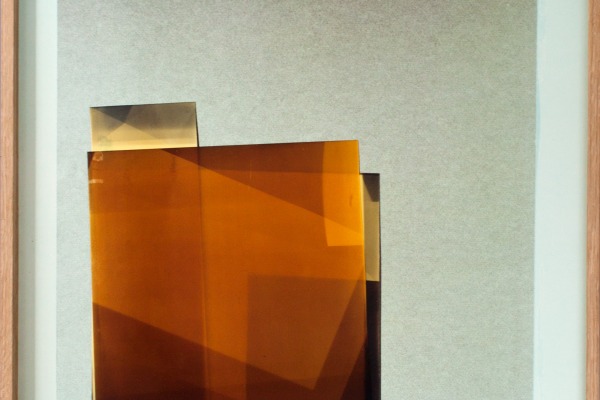
Residues
Cibachrome argentic photopaper
72 × 52 cm
2013
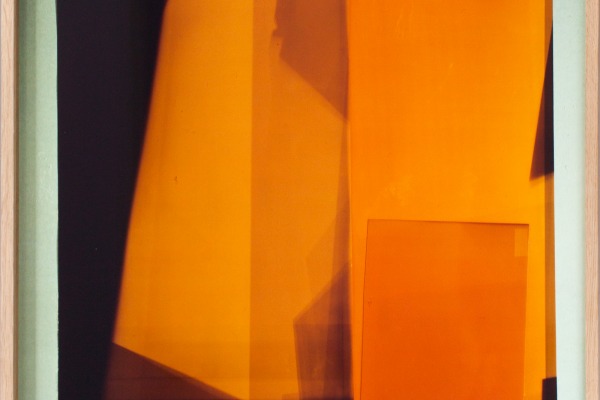
Residues
Cibachrome argentic photopaper
72 × 52 cm
2013
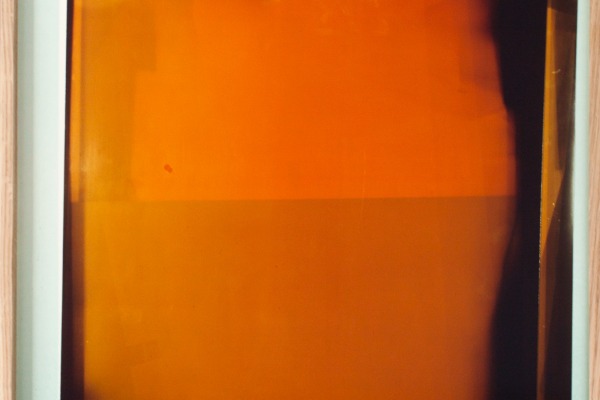
Residues
Cibachrome argentic photopaper
72 × 52 cm
2013
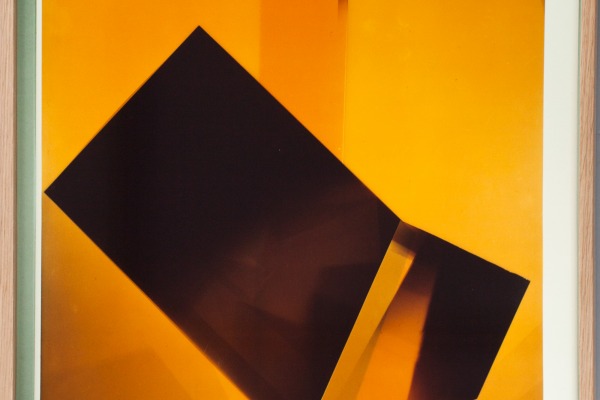
Residues
Cibachrome argentic photopaper
72 × 52 cm
2013
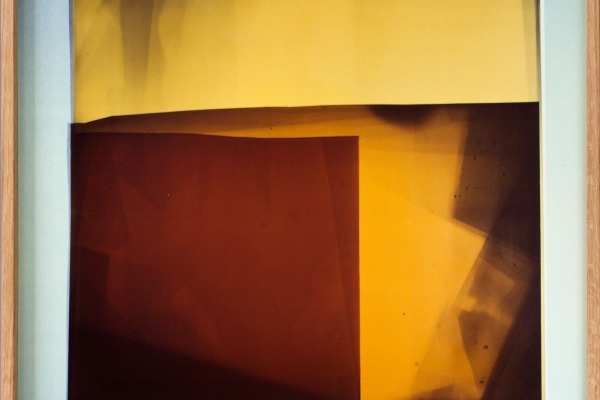
Residues
Cibachrome argentic photopaper
72 × 52 cm
2013
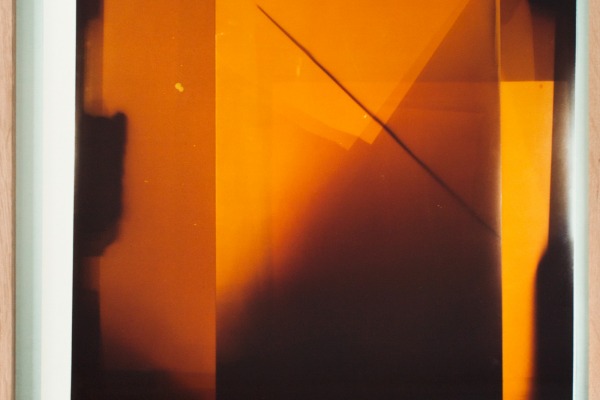
Residues
Cibachrome argentic photopaper
72 × 52 cm
2013
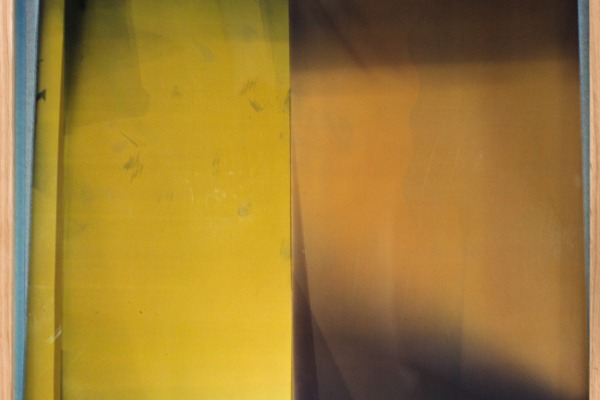
Residues
Cibachrome argentic photopaper
72 × 52 cm
2013
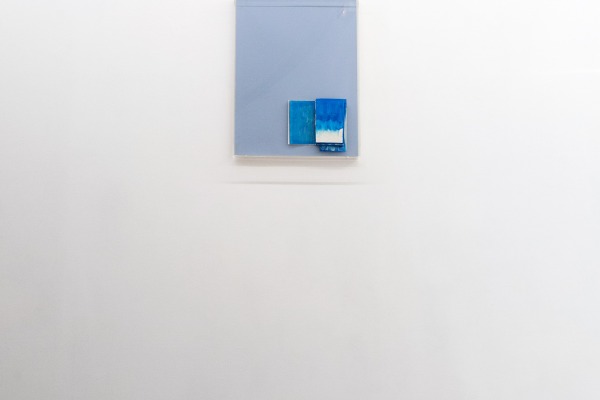
Duras
Fuji argentic photopaper still exposed
72 × 52 cm
2013
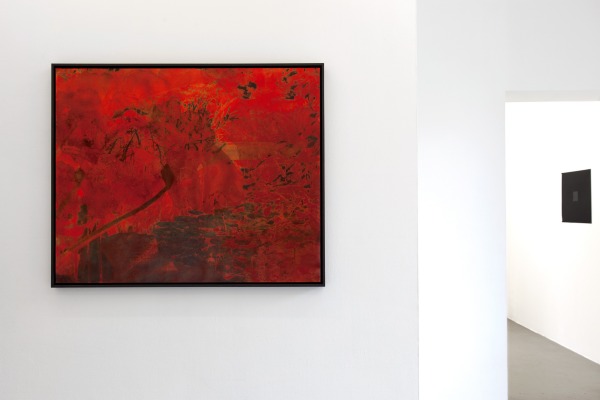
From green to orange #7
Photograph, alcohol, colouring agent, rust, #7:
93,5 × 114 cm
2013
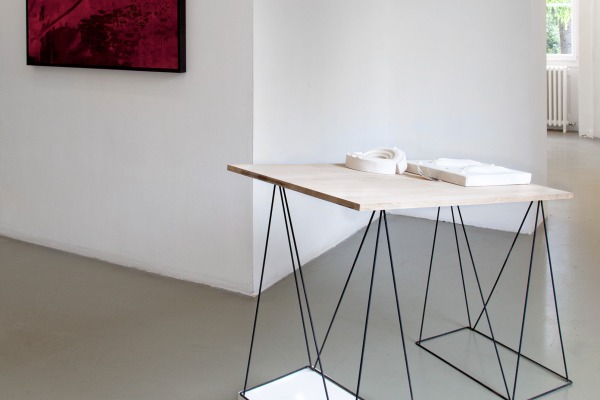
Presse-Palmier
Oak wood, plaster casts, steel
87,5 × 110 × 60 cm.
2013
From green to orange #7
Photograph, alcohol, colouring agent, rust, #7:
93,5 × 114 cm
2013
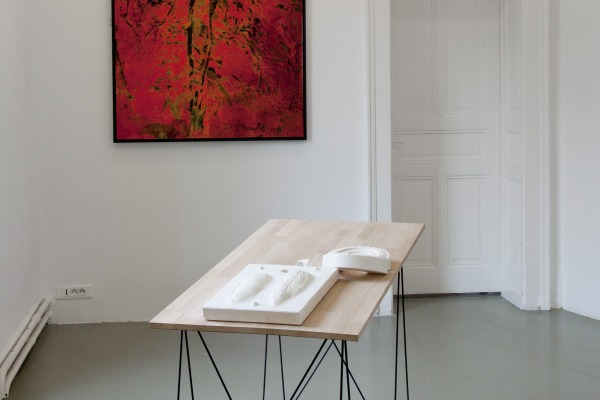
Presse-Palmier
Oak wood, plaster casts, steel
87,5 × 110 × 60 cm.
2013
From green to orange #7
Photograph, alcohol, colouring agent, rust, #7:
93,5 × 114 cm
2013
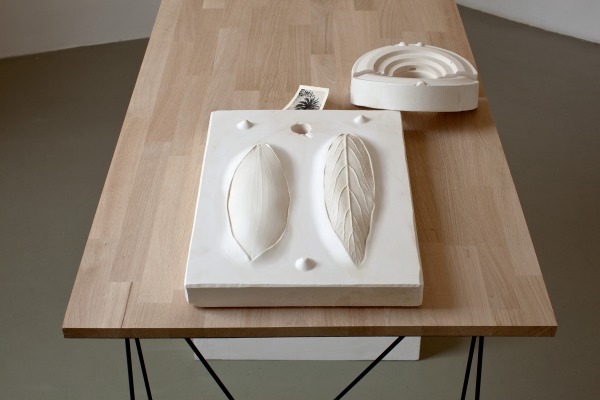
Presse-Palmier
Oak wood, plaster casts, steel
87,5 × 110 × 60 cm.
2013
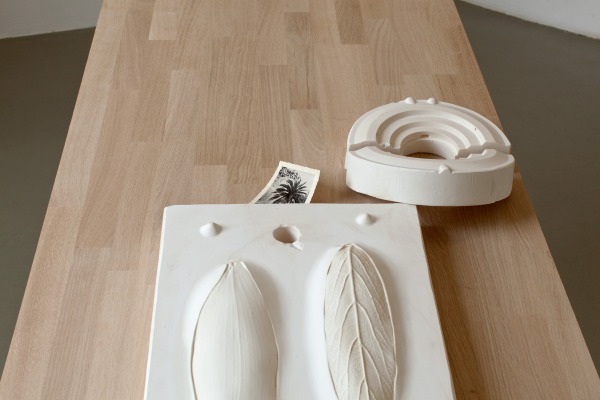
Presse-Palmier (Details)
Oak wood, plaster casts, steel
87,5 × 110 × 60 cm.
2013
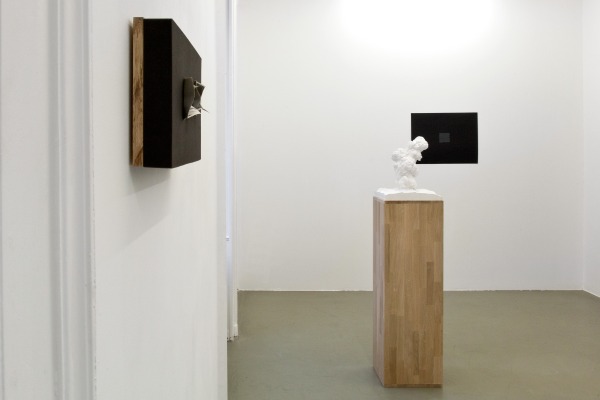
Upstream
Two photographs, foam, bolts, oak wood,
50 × 26 × 7 cm
2013
Eruption #5
Plaster, oak wood
147,5 × 34,5 × 34 cm
2013
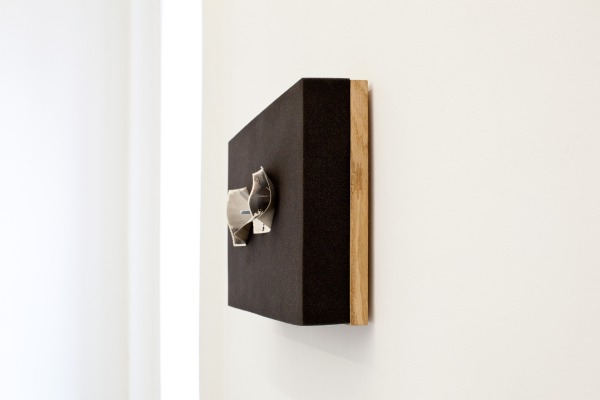
Upstream
Two photographs, foam, bolts, oak wood,
50 × 26 × 7 cm
2013
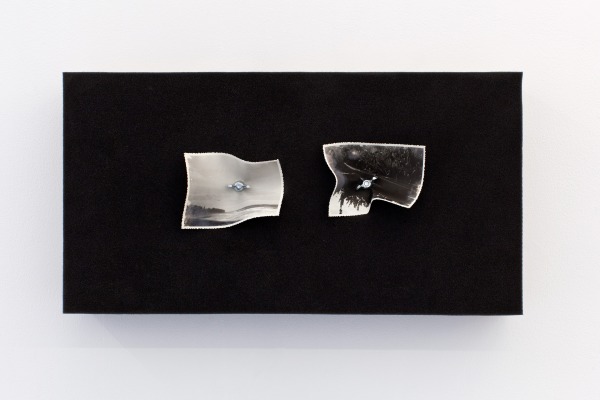
Upstream
Two photographs, foam, bolts, oak wood,
50 × 26 × 7 cm
2013
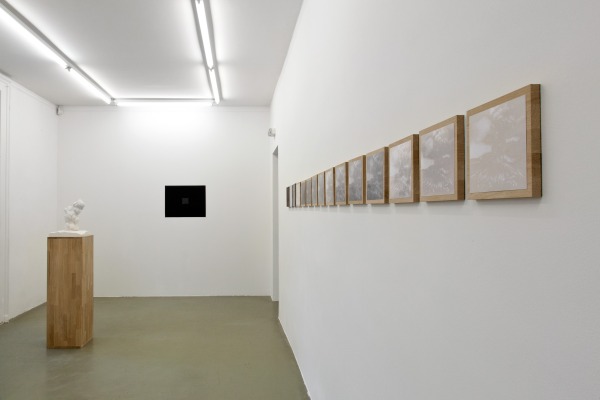
The 18th Place (view of the exhibition)
Digressions around the eruption of Mount Pelee
Twelve photograms on Fuji paper, plaster and black pigment, oak wood,
20 × 20 cm (× 15)
Exposure time of images: between 30 sec and 96hrs. Cloudy and sunny weather
2013
Eruption #5
Plaster, oak wood
147,5 × 34,5 × 34 cm
2013
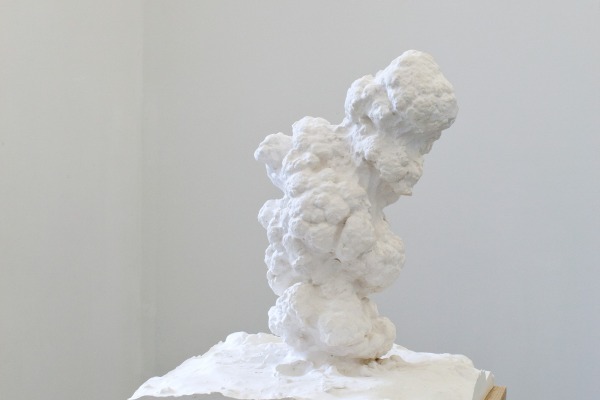
Eruption #5
Plaster, oak wood
147,5 × 34,5 × 34 cm
2013
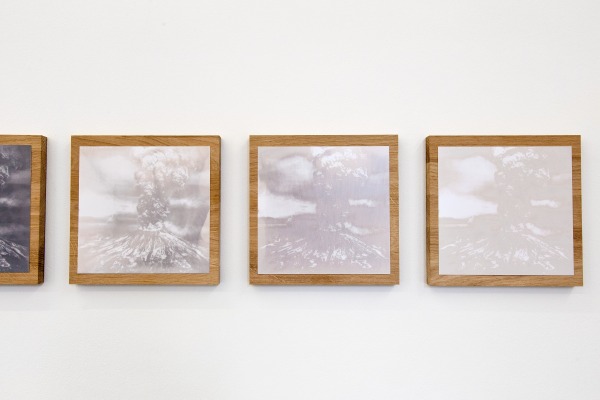
Digressions around the eruption of Mount Pelee
Twelve photograms on Fuji paper, plaster and black pigment, oak wood,
20 × 20 cm (× 15)
Exposure time of images: between 30 sec and 96hrs. Cloudy and sunny weather
2013
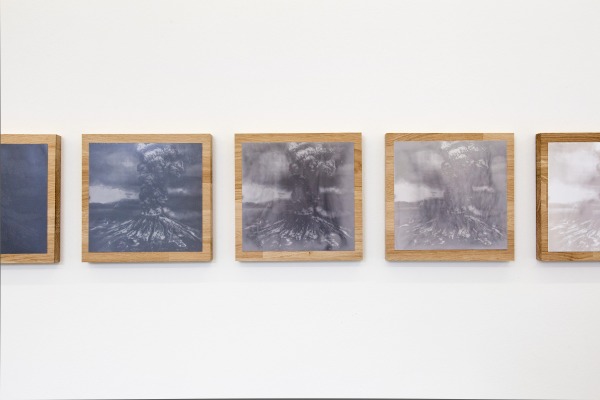
Digressions around the eruption of Mount Pelee
Twelve photograms on Fuji paper, plaster and black pigment, oak wood,
20 × 20 cm (× 15)
Exposure time of images: between 30 sec and 96hrs. Cloudy and sunny weather
2013
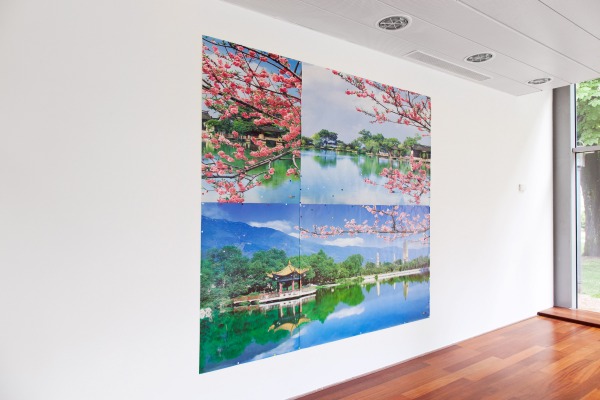
Chinatown
off set prints, drawing pins (metal and plastic)
209,5 × 224,5 cm
2012–13
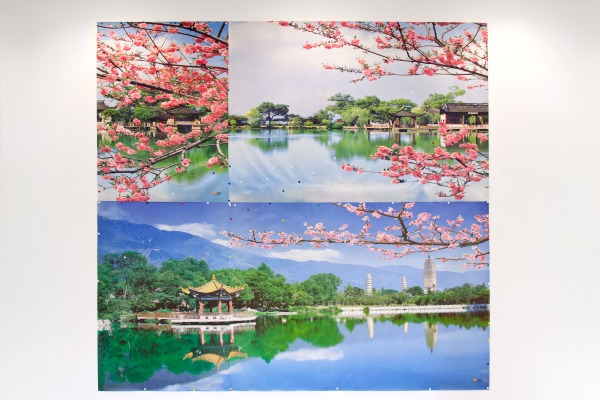
Chinatown
off set prints, drawing pins (metal and plastic)
209,5 × 224,5 cm
2012–13
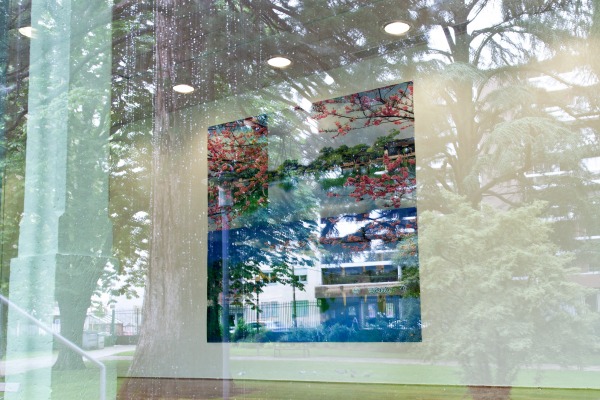
Chinatown
off set prints, drawing pins (metal and plastic)
209,5 × 224,5 cm
2012–13